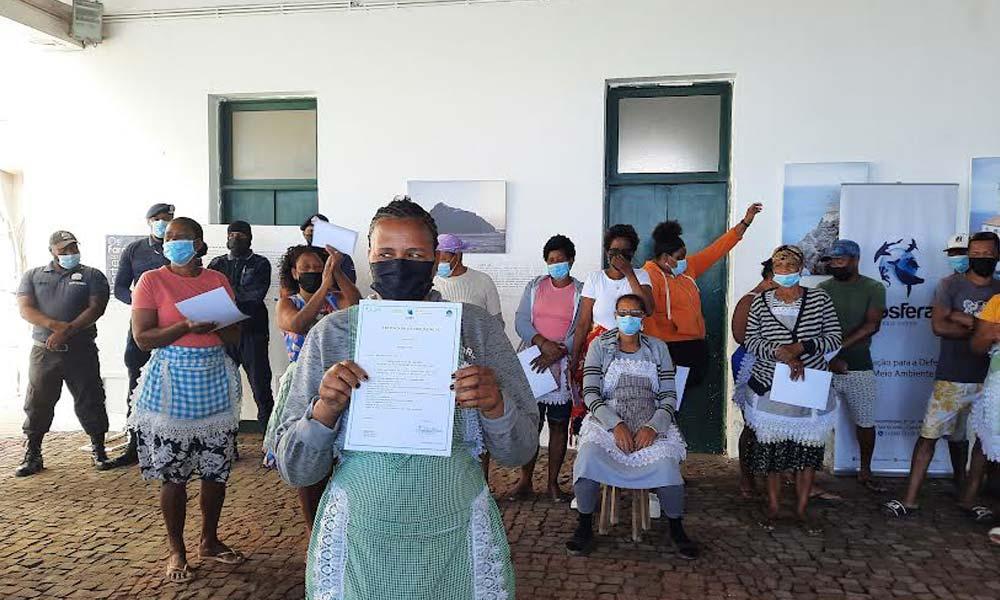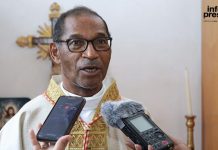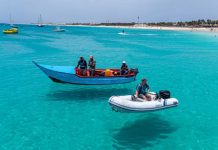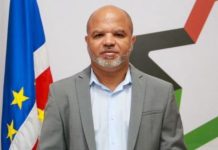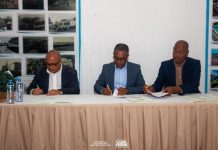Africa-Press – Cape verde. About 80 fishmongers, fish handlers and security guards at the fish market on the island of São Vicente are now better trained in handling fish with a view to hygiene and food safety.
The initiative of this three-day training workshop, which came to an end this Thursday, 10, came from Biosphere, in partnership with CV Qualy and the Municipality of São Vicente
Jessica de Matos, assistant to the Sustainable Fisheries project, launched by Biosphere in 2019, explains that this fish handling workshop is one of several activities contemplated.
“We have already carried out a workshop in the fishing communities and, now, we intended to do one for the fish market, whose objective is to inform about ways to implement and methodologies for handling fish, sanitation, basic hygiene to apply in everyday life and provide a product fresher for consumers and, at the same time, get information from them”, he explains.
To this end, according to the same source, a study was carried out by CV Qualy in the fish market so that the workshop could be more inserted in the daily lives of these workers and so that they could exchange ideas.
The initiative is thus evaluated “positively” as there was a lot of adherence and workers gave “positive feedback”.Delayed works on the market According to CV Qualy trainer Carlos Barbosa, from the study carried out some recommendations emerged and the training of staff in terms of hygiene and food safety was one of them, in addition to several others.
“Training was the first thing that has already been carried out within the various recommendations that emerged from the study carried out, the others being the question of remodeling the works that the fish market needs”.
Citing as an example “the reformulation of the benches since the current ones do not meet the requirements of hygiene and food safety; the second point has to do with the need to create toilets on the market”, since it is speculated that people do their physiological needs on the street, which, according to him, does not guarantee hygiene.
He also adds that there is a need for washbasins to wash hands and warns of the fact that there are animals circulating inside the fish market. The training was adapted to the educational level of the target audience, for which they used many images, videos and debates so that everyone could participate actively.
With regard to the delay in the market remodeling works, councilor Neusa Sança, who was present at the participation certificates ceremony, apologizes for the same, justifying “setbacks”, but pointing out that an attempt will be made to “accelerate the work” that “has already been resumed”.
In addition to the delivery of certificates, which took place at the Sea Museum, there was also the delivery of the manual of good practices developed by CV Qualy, which is basically the summary of all training on good hygiene practices and will be available at the fish market for when workers want to consult. This event took place at the Museum of the Sea on the island of São Vicente.
Sustainable Fishing It should be noted that the sustainable fishing project was implemented in 2019 by Biosphere, with the aim of promoting the preservation of grouper by raising awareness and changing attitudes of consumers and fishing communities.
The project encompasses the fishing community of Salamansa, the local consumer and local restaurants, promoting line and hook fishing and sustainable attitudes, such as respecting the minimum catch size of grouper (27 cm), through the sustainability certification of artisanal vessels. and the restaurants.
At the moment, the project works with 12 artisanal vessels from the fishing community of Salamansa, which will be certified for the sustainability of their product by committing to follow sustainable attitudes such as respecting the minimum size of capture of the species, respecting the closed seasons and capturing the fish using only line and hook.
For More News And Analysis About Cape verde Follow Africa-Press

